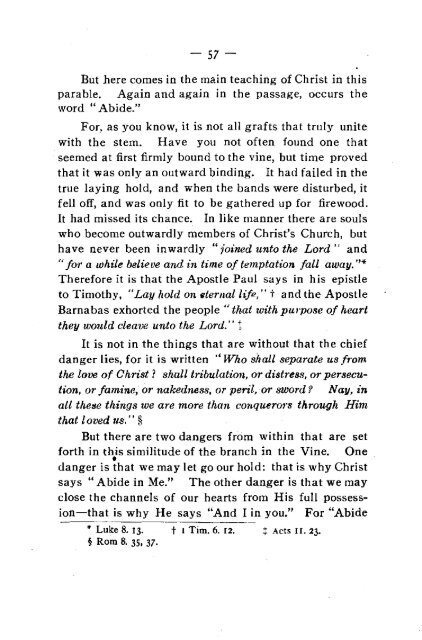The Way of the Seven Fold Secret by Lilias Trotter
Lilias Trotter moved from England to Algiers in 1888, at the age of 35, and died there in 1928. In the latter stages of her mission there, she wrote specifically for Muslims influenced by mysticism. Lilias based The Way of the Sevenfold Secret on Christ's seven 'I am' sayings in John's gospel, and attempted to link them to the traditional seven steps taken by members of Sufi orders in their quest for union with God. This republication should enable readers to capture the essence of a woman whose legacy is vitally alive for our times
Lilias Trotter moved from England to Algiers in 1888, at the age of 35, and died there in 1928. In the latter stages of her mission there, she wrote specifically for Muslims influenced by mysticism. Lilias based The Way of the Sevenfold Secret on Christ's seven 'I am' sayings in John's gospel, and attempted to link them to the traditional seven steps taken by members of Sufi orders in their quest for union with God. This republication should enable readers to capture the essence of a woman whose legacy is vitally alive for our times
Create successful ePaper yourself
Turn your PDF publications into a flip-book with our unique Google optimized e-Paper software.
- 57 -<br />
But here comes in <strong>the</strong> main teaching <strong>of</strong> Christ in this<br />
parable. Again and again in <strong>the</strong> passage, occurs <strong>the</strong><br />
word "Abide."<br />
For, as you know, it is not all grafts that truly unite<br />
with <strong>the</strong> stem. Have you not <strong>of</strong>ten found one that<br />
seemed at first firmly bound to <strong>the</strong> vine, but time proved<br />
that it was only an outward binding. It had failed in <strong>the</strong><br />
true laying hold, and when <strong>the</strong> bands were disturbed, it<br />
fell <strong>of</strong>f, and was only fit to be ga<strong>the</strong>red up for firewood.<br />
It had missed its chance. In like manner <strong>the</strong>re are souls<br />
who become outwardly members <strong>of</strong> Christ's Church, but<br />
have never been inwardly "joined unto <strong>the</strong> Lord" and<br />
"for a while believe and in time <strong>of</strong> temptation fall away.''*<br />
<strong>The</strong>refore it is that <strong>the</strong> Apostle Paul says in his epistle<br />
to Timothy, "Lay hold on eternal life," ·i· and <strong>the</strong> Apostle<br />
Barnabas exhorted <strong>the</strong> people "that with purpose <strong>of</strong> heart<br />
<strong>the</strong>y w01dd cleave unto <strong>the</strong> Lord.'' t<br />
It is not in <strong>the</strong> things that are without that <strong>the</strong> chief<br />
danger lies, for it is written ·• Who shall separate us from<br />
<strong>the</strong> love <strong>of</strong> Christ ? shall tribulation, or distress, or persecution,<br />
or famine, or nakedness, or peril, or sword? Nm;, in<br />
all <strong>the</strong>se things we are more than conquerors through Him<br />
that loved us."§<br />
But <strong>the</strong>re are two dangers from within that are set<br />
forth in this similitude <strong>of</strong> <strong>the</strong> branch in <strong>the</strong> Vine. One<br />
•<br />
danger is that we may let go our hold: that is why Christ<br />
says "Abide in Me." <strong>The</strong> o<strong>the</strong>r danger is that we may<br />
close <strong>the</strong> channels <strong>of</strong> our hearts from His full possession-that<br />
is why He says "And I in you." For "Abide<br />
* Luke 8. 13. t I Tim. 6. 12. t Acts II. 23.<br />
§ Rom 8. 35, 37.
















